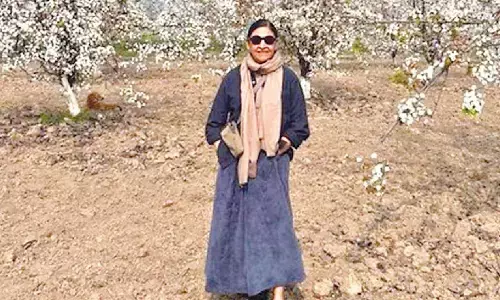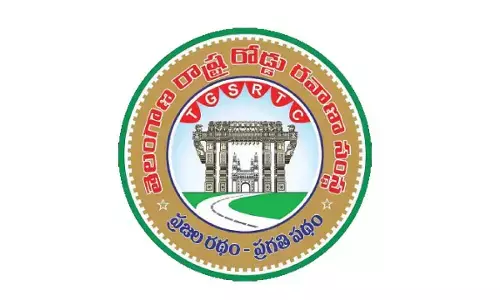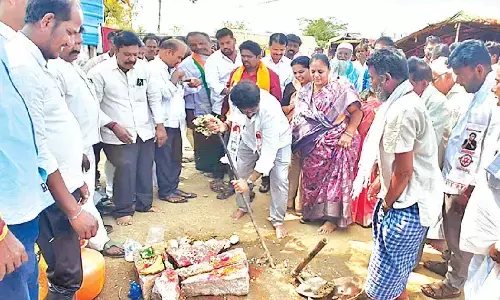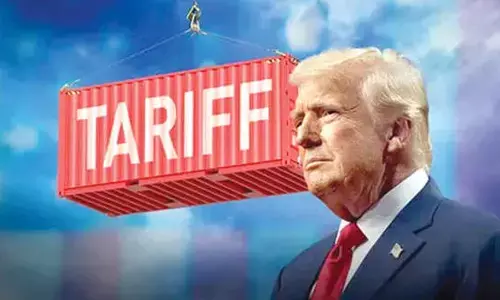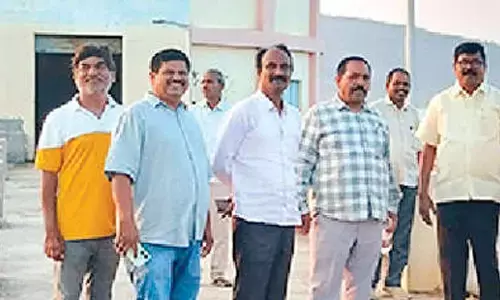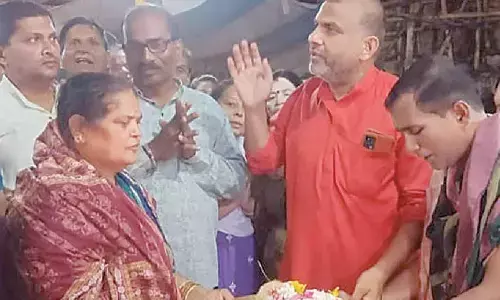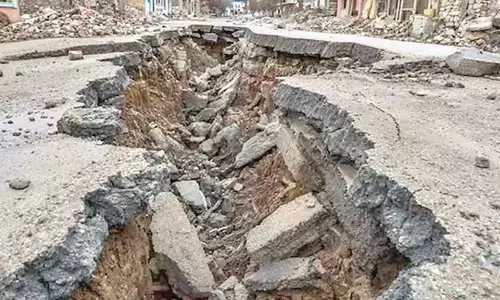Scarcity of quality teachers
Scarcity of quality teachers, Chukka Ramaiah, errant private D Ed colleges. Every day I read and react to different pieces of news related to our endeavours in education.
Knowledge generation in the age of information revolution requires a new kind of institutional re-engineering in governance, teaching learning process, evaluation practices that could address the learners' need much more effectively
Every day I read and react to different pieces of news related to our endeavours in education. The efforts to streamline the ‘errant private D Ed colleges’, the apparently unexplained ‘exodus’ of faculty from Sri Krishna University and the repeated statements that we have some ‘islands’ of excellence in our education field but even they have to be strengthened to meet international standards and such other news makes me wonder how much of overhauling we need to do. The inauguration of IIIT in Kakinada which promises to provide many opportunities to students in that corridor is a welcome measure but what needs is stringent planning, perfect quality execution if the goals are to be met. These set me thinking on how a teacher-call by any name a professor, a lecturer, a reader, a facilitator or a guide-is pivotal at any level of education and how no amount of infrastructural facilities and funding can ever compensate for a poor, rigid, shortsighted teacher.
Even today, more than my certificates and experience, it is the name of my school and the names of my teachers that give me credibility, authenticity, for whatever I am today is because of their values, ethics, thinking, their conscious attempts to bring out the best in the learners by realising that their impact would be lasting, far beyond the school years or college days and that they need to look ahead of their times while preparing their wards to face the future. Undoubtedly, the honour of being an illustrious teacher’s pupil always motivates me to do better than my best!
Our 12th FYP on education aims at inclusive and qualitative expansion of higher education. Though the plan is for the period 2012-2017, while we have already entered 2014, much needs to be done. I feel that immediate steps for maximum and optimum utilisation of available knowledge resources would be commendable and should be implemented in a mission mode. We are forced to acknowledge year after year that exceptions apart, majority of our higher education institutions perform poorly in the area of quality on a relative global scale. If we wish to materialise a ‘quantum jump’ in achieving the triple objectives of access and expansion, equity and inclusion, and quality and excellence, our understanding of what higher order thinking at the apex level constitutes and how research and teaching are complementary to one another has to be revised. What are the knowledge resources we can use immediately and what are the attitudinal changes we must accommodate at the university level, are points of my musings today.
Identifying merit, providing the necessary facilities and utilising it for the nation’s progress has to be our top priority. It is an accepted truth that many of our Indians have been contributing tremendously to quality research in universities abroad. China has welcomed back many of its scholars to ‘brain gain’ and enrich its education system. Indira Gandhi invited Prof Yashpal from England to be the UGC chairman and we should unhesitatingly follow a similar process now by convincing and welcoming some of our highly resourceful intelligentsia in academics to take an active role at home. Surely many would be willing to consider the offer if their academic freedom is respected and their financial benefits were safeguarded. The academic freedom and scholarly demeanor is what many of our universities still need to cultivate.
University should be a place where one can express ones ideas uninhibitedly as it will open a debate on a wide range of issues however outrageous or offensive they may seem to the commoners. Only then can one find the causes, the sources of ideas that threaten us, explain problems and seek out solutions based on knowledge. A scholarly temperament, a certain distinctive intellectual character must be nurtured …not mere transmission of human knowledge from one generation to the next. The debate on the genesis of this universe, for example, the Big bang or otherwise, the existence of the ‘God particle’, human hand in global warming, ethics in euthanasia, ethics in robotics, intervention of aliens in our Mahabharata war and many puzzles regarding our existence tease the thinkers and universities should give them the freedom to explore the infinite possibilities without question. If all unconventional, radical and unorthodox ideas were snubbed, we would still be believing in a geocentric universe and a flat earth perhaps! Galileo’s detractors were sure that his unorthodox view of the solar system was demonstrably false and dangerous in the best interests of civilised society, but though outrageous to his contemporaries, Galileo had his say, and the rest is history. So too, Euclidean geometry was based on the earlier premise that the earth was flat and when it was found to be spherical, having a straight line on it became questionable, as one can draw only curves and this led to the new geometries. Unless a teacher knows and lives by the principle that teaching and research are complementary, unless he has the audacity from within to dare question the previously established ideas and look further, he cannot imbibe the basic scholarly approach needed. What can any center of learning achieve if teachers of quality, who are the life and soul of it, are missing? So, be it in IIIT Kakinada, Hyderabad or elsewhere, let us not overlook this crucial component at least from now on. I strongly support and welcome the proposal in the 12th FYP to envisage newer initiatives to attract quality faculty coupled with mobility across the regions to meet the national level teacher requirements. The visionaries have recommended that movement of faculty from one institution to another for a period of 6 months to 2 years needs to be facilitated through appropriate provisions and guidelines from the UGC. Appointment of overseas faculty as Visiting Faculty at par with local faculty in terms of remuneration, and appointment of experts from industry in universities and colleges should be facilitated through special schemes.
Yet another measure that would strengthen our teaching inspite of our limited teacher resources would be in establishing forthwith “A National Educational Resource Portal”. It needs to be created and the data of all the educational institutions of the country should be made available on the portal and this should be made mandatory. This would be the first step towards national networking of universities and colleges.
Right from the primary level to the tertiary level, in reducing the rural urban divide, the gender and community differences in knowledge acquisition, our efficiency in using technology has to be enhanced multifold. Higher education institutions have to generate knowledge in all walks of life and with the help of technology, relate knowledge to the needs of the society. How apt the observation that “knowledge generation in the age of information revolution requires a new kind of institutional re-engineering in governance, teaching learning process, evaluation practices that could address the learners' need much more effectively.” We now need to focus also on knowledge generation from our learners' perspective and with a view to addressing the needs of the future society.
I do not hesitate to reiterate that right from what our so-called trained teachers from D Ed institutions do at the primary level to what our professors do at the apex level is all interconnected and either productive or counter-productive depending on their commitment to excellence. Quality and promotion of excellence are, therefore, of utmost significance and are products of an environment which has to be built bit by bit at all the levels.The quality in higher education hinges on physical infrastructure; adequate number of quality teachers; effectiveness of the teaching-learning processes; sustained efforts for promoting research and efficient academic governance in universities and colleges.
Let us be wise in our investment of funds and human resources and give importance to not the mere number of institutions launched but their lasting quality in contributing to our nation’s progress. At all levels, let there be teachers whose character and commitment would be a greater asset to their wards than the degrees conferred.
(The writer is a noted




